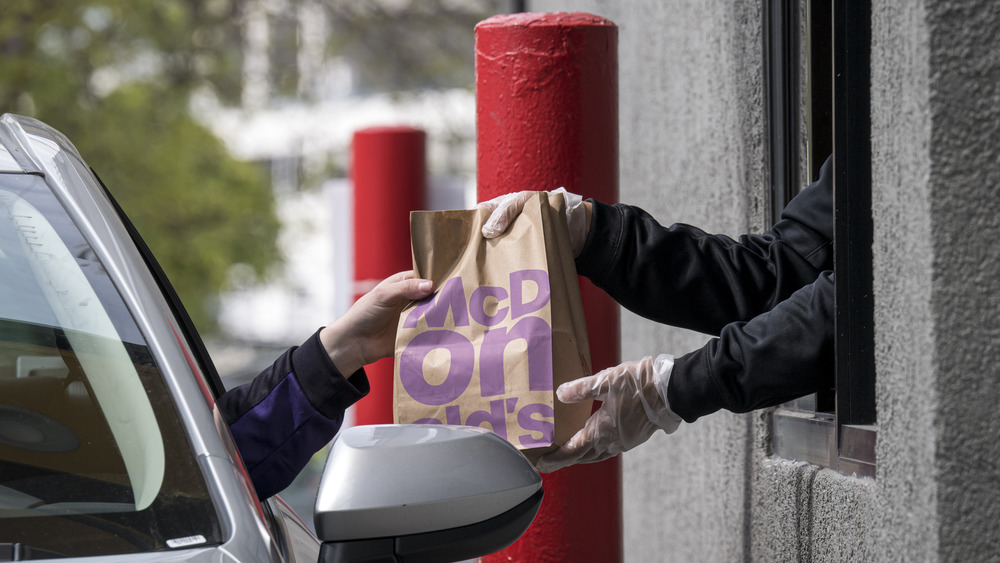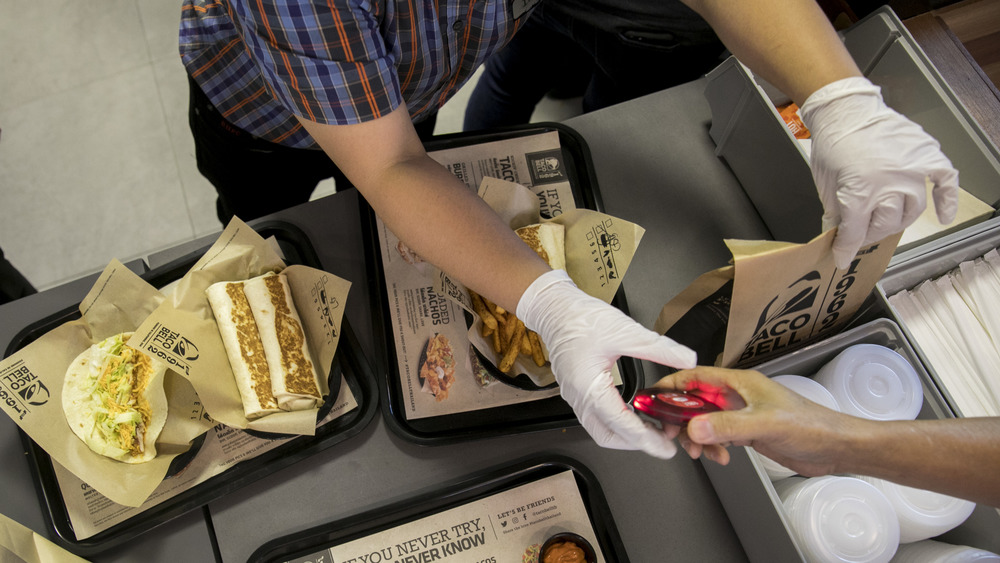The Real Reason Fast Food Prices Are Going Up
As the continued effects of the coronavirus pandemic forced people to limit their dining out, many shifted their need to ordering in. This change, as Restaurant Business reports, has over the course of 2020 driven up the price of menu items of fast food and other limited service restaurants by 6.2 percent. Meanwhile, full-service restaurants that can offer neither take away nor delivery saw prices increase by only 2.9 percent.
Jonathan Maze, writing for Restaurant Business, explains the difference in inflations by pointing to two drastically different models of demand and wages. As mentioned earlier, fast food chains have seen an increase in business due to the pandemic. According to Business Insider, McDonald's saw same-store sales increase by 4.6 percent, Taco Bell by 3 percent, and KFC by 9 percent with a corresponding 60 percent increase in traffic for their drive-thru.
As Restaurant Business points out, KFC can raise prices because they have managed to hold and expand their grip on the market, while restaurants cannot follow suit due to fears of driving away customers already limited by the size of their establishment and social distancing restrictions. KFC can also serve more customers at a faster pace as they, as well as every other brand in the industry, have pivoted to focusing on their drive-thru options. Some, like KFC, have even gone as far as to remove the dining area from their designs, cementing an ease-of-use factor that allows them to raise their prices even higher.
Fast food chains need to pay competitively as well
The other factor for the inflation in fast food prices is the need to pay higher wages, according to Restaurant Business. Higher wages, either as hazard pay or a permanent wage increase, are on the table due to the risk fast-food workers have run by coming into close contact with hundreds of people per day. And, the workers know it. One example of the renewed demand for fairer conditions was seen during the May 2020 strike called by McDonald's workers. As covered by HuffPost, McDonald's workers across 20 cities called a strike demanding sick leave, hazard pay, and more. To offset potential losses accrued from raised wages, brands raise prices.
The other reason that fast food companies have to raise wages, however, is to keep up with their competition. Maze names Walmart, Target, and Costco as brands that have raised their own minimum wage to more than double the federally mandated minimum, with Costco announcing another wage hike just last week. Since these companies and fast food brands hire from the same pool of workers, fast food brands have to raise their minimum wage, otherwise, there's little reason for a worker to voluntarily make less while working a similar position.
Another reason for rising fast food prices? Chains are raising their prices on third-party delivery orders. Again, fast food chains are better equipped to meet these demands than sit-in restaurants. With the rest of the industry wrecked by the pandemic, we can expect prices to continue their rise.

